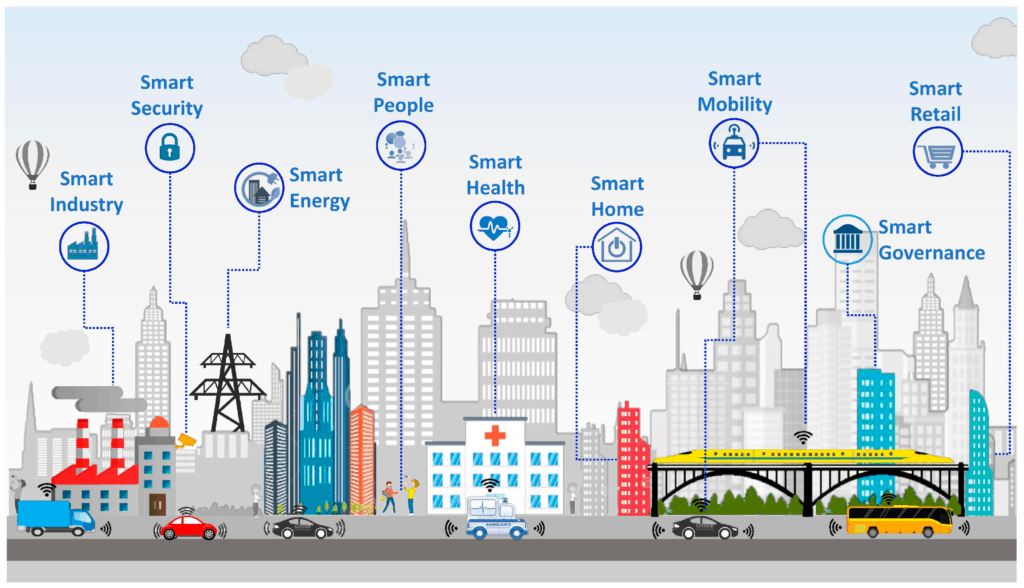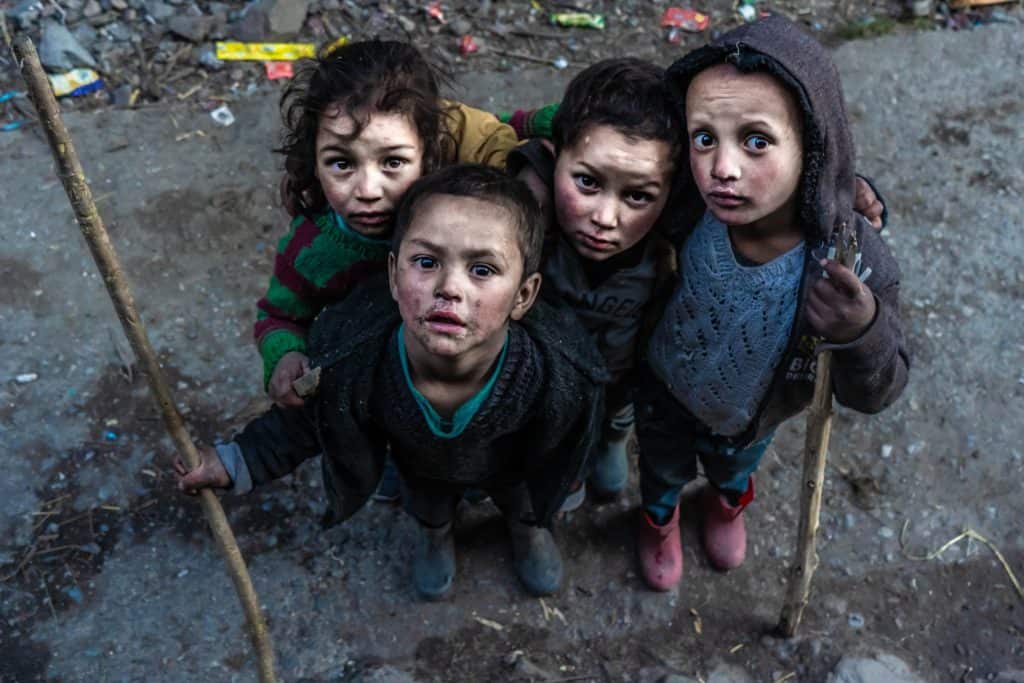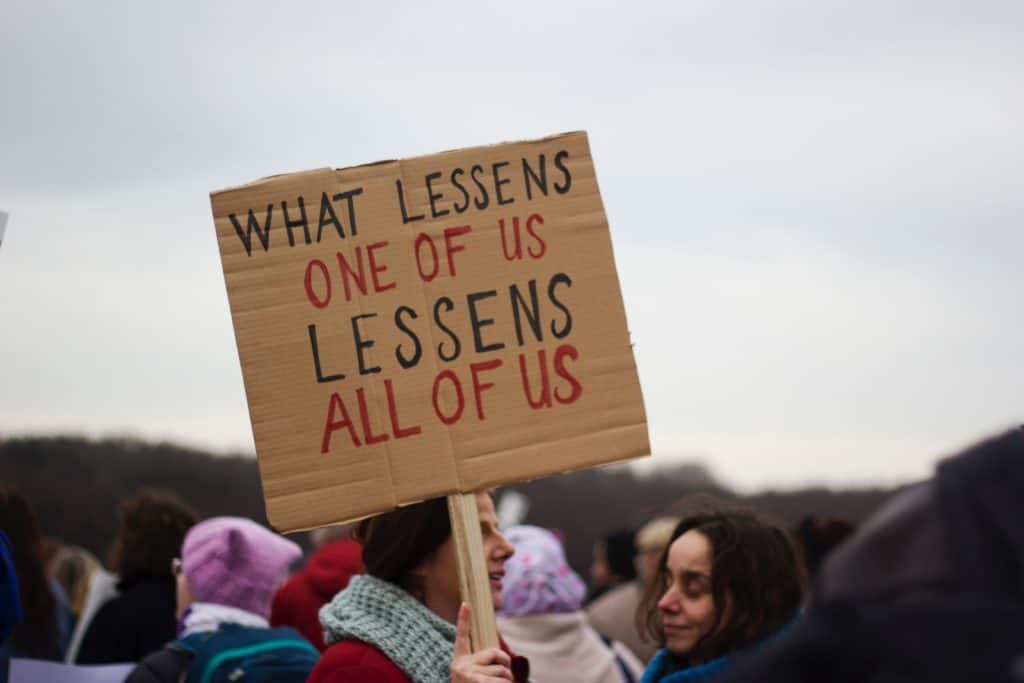The “Women of New India” had a story of a young woman who used to live in the suburbs of the Delhi-Haryana Border, a small place called Kundli where she used to stay with her family of five, her husband being a Supervisor in the near Manufacturing unit.
While the husband earned around Rs. 12000 to support his family, she had recently started to get Rs. 3500, after a hike of Rs. 300 was announced over a year ago, but it was only until very recently that such provision was implemented.
What exactly does the story make us understand? Do people like staying in such misery working for such meagre amounts, or do they have to do all this out of compulsion?

SMART CITY, as a mission, was announced by the Modi government as a flagship scheme to transform 100 cities into what they call as “SMART”. Searching through the official website of the Ministry of Urban Development tells us that these Smart Cities will have facilities enabled through the usage of IT infrastructure and solutions, better support in the form of health and education facilities, better livelihood opportunities, institutional facilities and accessible public transportation.
While the provisions sound good on paper and the motivation and intent cannot be doubted, the fact that the Government didn’t focus on critical elements of the society makes it look like a lacklustre attempt at hiding the lack of abilities in being able to tackle the burgeoning urban population.
According to the Census 2011, cities in our country have nearly 31 per cent of the population, while they contribute around 63 per cent of the GDP. In fact, by 2030, while the Urban areas are expected to house around 40 per cent of the population, they’ll contribute around 75 per cent of the GDP.
The community staying and dependent on urban livelihood is only going to increase.
Hence, it requires comprehensive development of the physical, institutional, social and economic infrastructure. The need for it pushed the Government to implement Smart City Mission. But the Mission has specific issues
Issues with Smart City Mission:
a) Misaligned Priorities:
The Mission emerged as too project-specific. The “SMART CITY” based on the usage of smart technology has been planned over just five per cent of the city areas, while they consume eighty per cent of the allocated money.
b) Discrimination:
The mission neglect the poor and marginalised populations, which includes the women, Schedule Castes-Scheduled Tribes, slum dwellers, transgender people and disabled/DIVYANGS who contribute their blood and sweat into building the cities.
c) Disregard to human rights:

Smart city mission is plagued by the glaring absence of a rights-based approach. There have been cases of slum clearances for city beautification. For example: recently, while going to Bandra-Kurla Complex, I saw that “slum rehabilitation” was taken up by the local authority, which mainly included clearing of the slums. But were they provided with an equal number of housing facilities?
d) Mangrove Destruction:

Smart City development mainly focuses on increasing the living space and expansion of the cities. Places like Bhayander and Vashi-Vasai region is a burgeoning market for housing and real estate growth. But the Mangroves and Swamps around the area will eventually be compromised upon for building and house. This will not only affect the environment, but it also will hamper the ecological cycle and pollution level of the city.
e) Satellite Towns and Slumification:

Satellite Towns are places having their origin owing to the city and job opportunities that the city provides. To cut on the rental cost and real estate costs, commuters travel from far off regions (50-60 km from the city) daily.
Some settle down in slums because they cannot afford rent in cities.
Adding to that, commuters have to travel via congested public transportations like Mumbai Local where the risk is taken to move in much more than being left alone in a desert in Thar. Can you imagine living on the edge EVERY SINGLE DAY to complete that job cycle of yours?
The story in the beginning talks of a similar tale of a dweller from a satellite town!
As can be inferred, Smart Cities Mission comes at the cost of income and social inequality, risk of commuting, environmental values, human rights violations, and much more!
Is Sustainable Cities the Option?
In light of this, need is to reinvent mission, from smart city to a sustainable city, which requires a change from piecemeal area-based intervention to holistic urban planning paradigm, so as to accommodate 600 million citizens in these cities by 2030.
The Mission needs a ‘human rights-based implementation and monitoring framework’ to assess the achievement of targets. It must develop a particular focus on the needs, concerns and human rights of the marginalised groups, individuals and communities.
Human-rights based impact assessment (HIA) and environmental impact assessment (EIA) should be mandatory for all ‘smart city’ projects before they are approved.
Also Read: Water Crisis In India 2019 – Reasons & Solutions
Some points that can be focussed on:
a) Governance:
The need is of meaningful participation and engagement of the people from all the sections in the society, so that the specific needs of the urban women, DIVYANGS, transgender people, are equally prioritized.
b) Inclusiveness:

The rights to adequate housing, work/livelihood, the security of the person and home, water, sanitation, health, food, privacy and information must be protected. It should primarily focus on empowering women and weaker sections. These sustainable cities should be based on intra and intergenerational equality.
c) Ecology:

It should focus on renewable energy, natural ventilation system, green building ratings, green roofs, enhanced mobility through mass transit system, pedestrianisation, cycling, car-free landscapes, sustainable drainage etc.
d) Ethical consumption:

Primary focus should be on the efficient utilisation of city resources such as water, food, energy, fuel so as to avoid wastage.
Modest ecological footprint & Reduce, reuse, recycle should be the mantra. Plastic ban, waste segregation, solid waste management, universal sanitation, emission reduction need to be engraved in citizen behaviour.
e) Commitment:
The Mission should align with India’s legal obligations under the Paris Agreement and its Intended Nationally Determined Contribution (INDCs), it’s New Urban Agenda (2016) and Sustainable development Goal 11: Sustainable Cities and Communities which strives for making cities and human settlements inclusive, safe, resilient and sustainable.
Today, cities need to be protected and developed in a sustainable and inclusive manner, simultaneously equal attention needs to be paid on the development of smart villages and other rural transformation-related interventions which will not only help arrest excessive urbanisation leading to its unplanned, pressurised and sudden growth but also will lead to dispersal of economic opportunities to the countryside.
The views and suggestions listed in the above article are individual views of the author.
To read about more such thought provoking stories about the “New India” please stay tuned to Yeh Hai India









